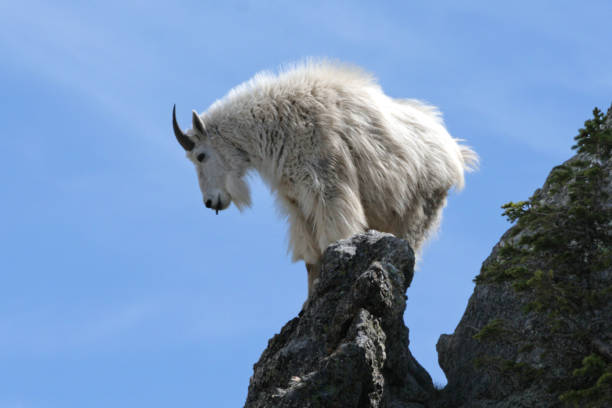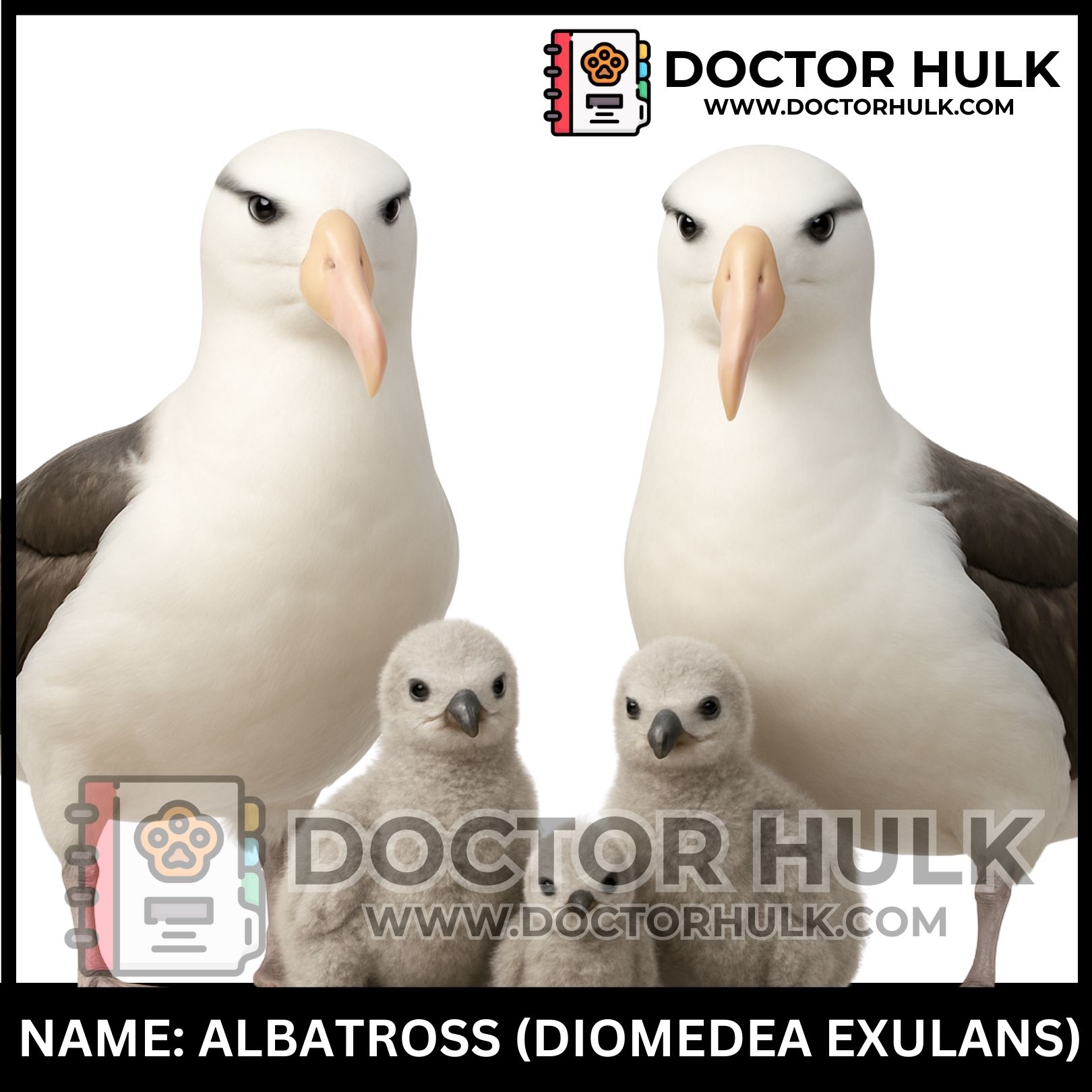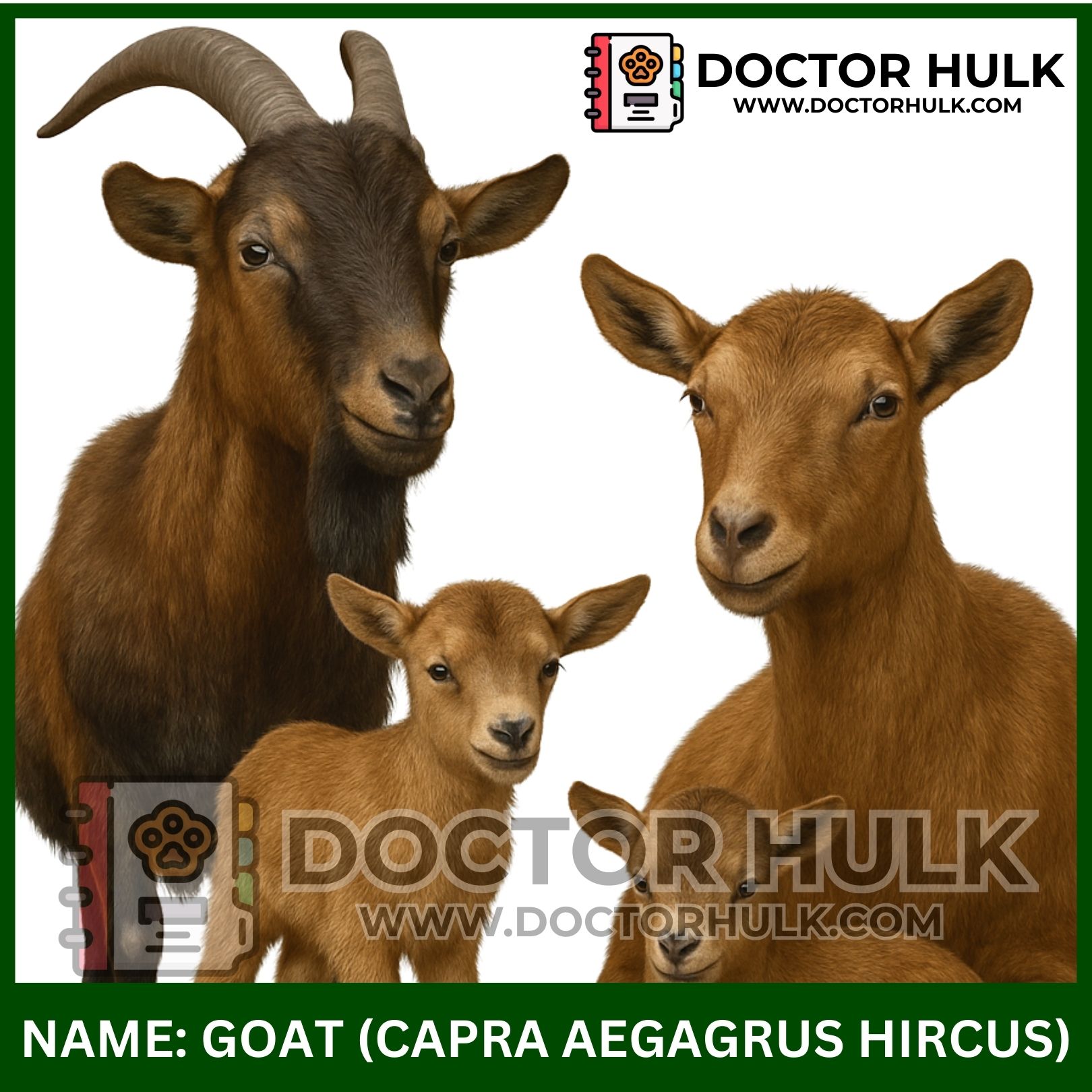Goats are among the oldest domesticated animals in the world. They are smart, curious, and can live in many different environments, including mountains and backyards. Goats are raised for milk, meat, fur, and companionship, and their playful behavior makes them one of the most entertaining animals to watch.
Scientific Classification
-
Kingdom: Animalia
-
Phylum: Chordata
-
Class: Mammalia
-
Order: Artiodactyla
-
Family: Bovidae
-
Genus: Capra
-
Species: Capra aegagrus hircus (domestic goat)
Common Names
-
Goat
-
Billy goat (adult male)
-
Nanny goat (adult female)
-
Kid (young goat)
Goats have different names in various cultures, often symbolizing wisdom, stubbornness, or resilience.
Geographic Distribution
Goats are found worldwide, especially in:
-
Africa
-
Asia
-
Europe
-
North and South America
They are very adaptable and can live in dry lands, mountains, forests, and farms.
 Image showing a Goat standing confidently on a rocky mountain slope (Source: iStock))
Image showing a Goat standing confidently on a rocky mountain slope (Source: iStock))
Physical Characteristics
-
Size: Varies by breed (from 20 kg to over 100 kg)
-
Coat: Can be short or long; varies in color (white, brown, black, or spotted)
-
Horns: Most breeds have curved horns, both males and females
-
Eyes: Distinct horizontal pupils for wide field of vision
-
Hooves: Strong, split hooves for climbing
Their bodies are built for balance, which is why they climb so well.
Common Goat Breeds
1. Boer Goat
 Image showing a Strong Boer goat sniffing the grass (Source: Shutterstock)
Image showing a Strong Boer goat sniffing the grass (Source: Shutterstock)
Key Facts:
-
Origin: South Africa
-
Large and muscular
-
Popular for meat production
-
Calm and hardy
2. Saanen Goat
 Image showing a White Saanen goat grazing peacefully in green pasture (Source: iStock)
Image showing a White Saanen goat grazing peacefully in green pasture (Source: iStock)
Key Facts:
-
Origin: Switzerland
-
Excellent milk producers
-
Gentle and friendly
-
Prefer cool climates
3. Nubian Goat
 Image showing a Nubian goat with long floppy ears and a bell around it’s neck (Source: Pinterest).
Image showing a Nubian goat with long floppy ears and a bell around it’s neck (Source: Pinterest).
Key Facts:
-
Origin: Middle East and Africa
-
Recognized by long ears and Roman nose
-
Good milkers
-
Vocal and sociable
4. Pygmy Goat
 Image showing Small pygmy goat jumping playfully on a wooden platform (Source: iStock)
Image showing Small pygmy goat jumping playfully on a wooden platform (Source: iStock)
Key Facts:
-
Small-sized and energetic
-
Popular as pets
-
Love to play and climb
-
Need less space
What do goats eat?
Goats are herbivores and known for their strong appetite. They feed on:
-
Grass and leaves
-
Weeds and shrubs
-
Tree bark
-
Hay and grains
-
Salt licks for minerals
They are natural browsers, not grazers like cows, they prefer variety in their diet.
Fun facts
-
Goats can recognize human faces and voices.
-
They have 360-degree vision thanks to their eye shape.
-
Baby goats (kids) can stand and walk minutes after birth.
-
Some goats can climb trees or balance on cliffs.
-
Goats communicate using bleats and body language.
Importance to Humans
Positive Roles:
-
Source of milk, cheese, and meat
-
Used for weed control in farms
-
Their dung is useful for manure
-
Provide income for many rural families
-
Friendly and engaging as pets or therapy animals
Challenges:
-
Can escape enclosures easily
-
Sometimes destructive to gardens or crops
-
May be loud and curious around human property
Health & common issues
Goats are generally hardy, but still need good care to stay healthy.
Common health issues include the following:
-
Worm infestations
-
Foot rot or hoof problems
-
Pneumonia
-
Bloating from improper feeding
-
External parasites (ticks, lice)
Veterinary Needs:
-
Routine deworming
-
Proper shelter and clean water
-
Hoof trimming and grooming
-
Vaccinations and check-ups
Conservation status
Domestic goats are not endangered.
However, their wild cousins, like the Markhor or Ibex, face threats in some regions due to habitat loss and hunting.
Goat vs Sheep
| Feature | Goat | Sheep |
|---|---|---|
| Tail | Points up | Points down |
| Personality | Curious and independent | More docile and group-following |
| Diet style | Browsers (eat shrubs, leaves) | Grazers (eat mostly grass) |
| Sound | Loud bleating | Softer baa-ing |
 Image showing a goat standing proudly on a rock, looking into the distance (Source: StockCake)
Image showing a goat standing proudly on a rock, looking into the distance (Source: StockCake)
Are you interested in raising goats or learning about farm animal care? You can contact Doctor Hulk Veterinary Hospital to guide you every step of the way. You can call 08143397614.













Reviews
There are no reviews yet.